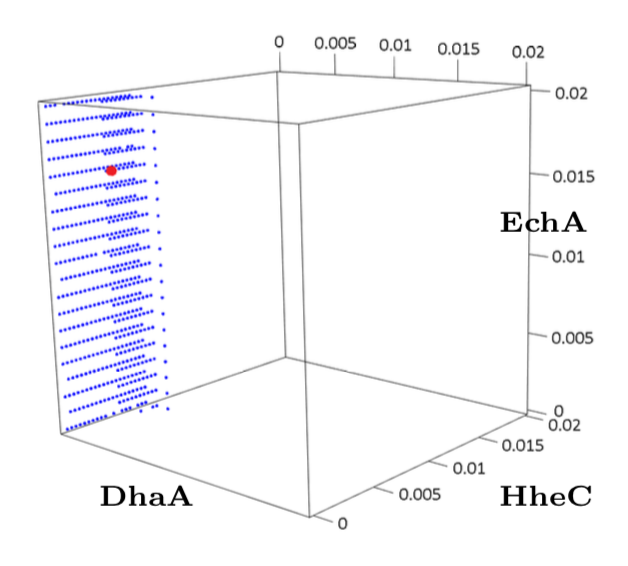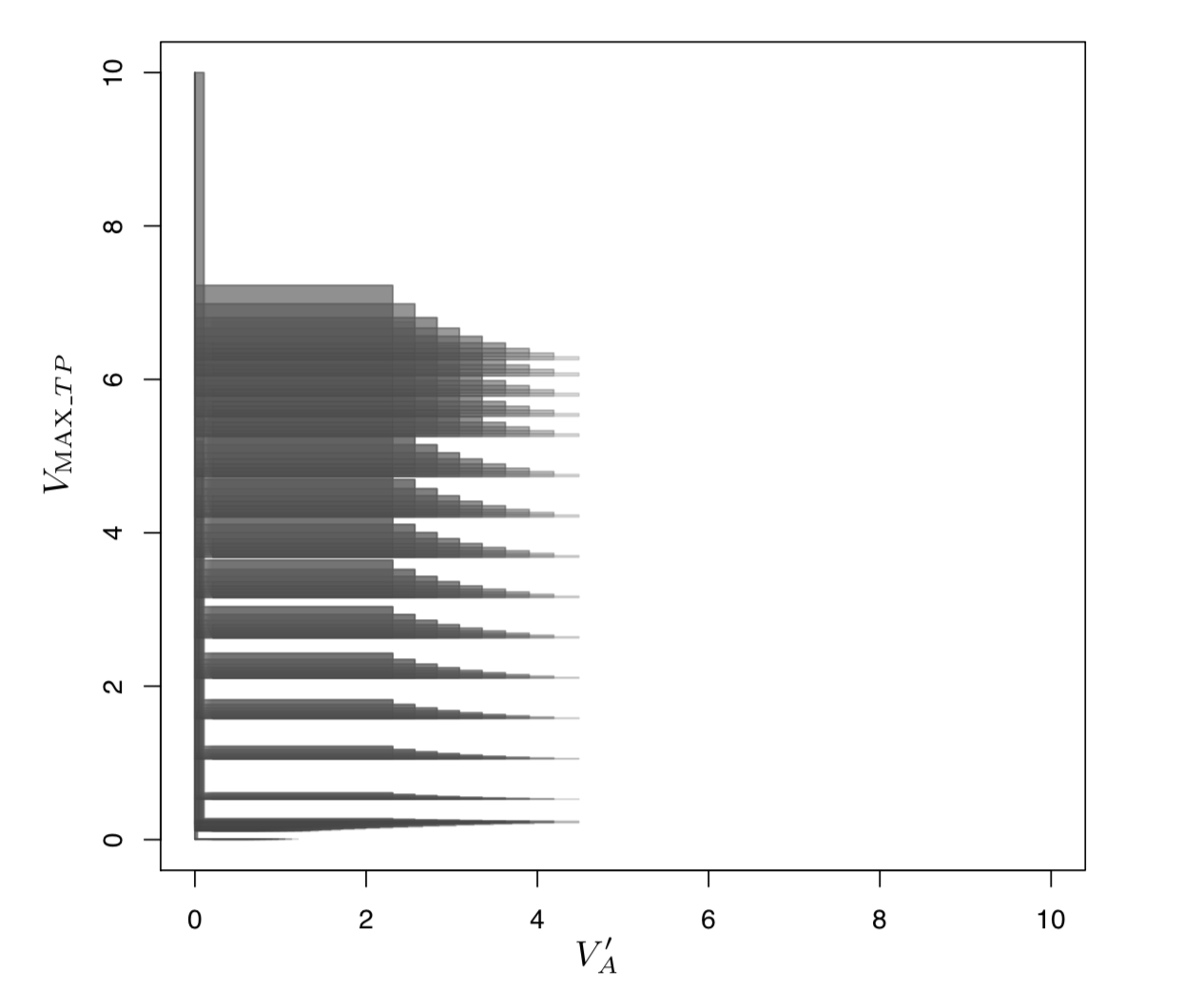Digital Bifurcation Analysis
Student: Samuel Pastva
Supervisor: Luboš Brim
Mgr. in Informatics with honours, Parallel and Distributed Systems specialisation


Samuel Pastva
Member of the Sybila (systems biology) laboratory since 2015
co-author of 10 international publications
Google Scholar h-index 4
Luboš Brim
Google Scholar h-index 31
Active in the area of formal verification since 1980
Founder and head of Sybila since 2009
David Šafránek
Google Scholar h-index 12
Coordinator of The National Infrastructure for Systems Biology and CyanoTeam group
GAČR project: Techniques for analysis of complex dynamical systems
Bifurcation analysis is a well studied problem in continuous dynamical systems.
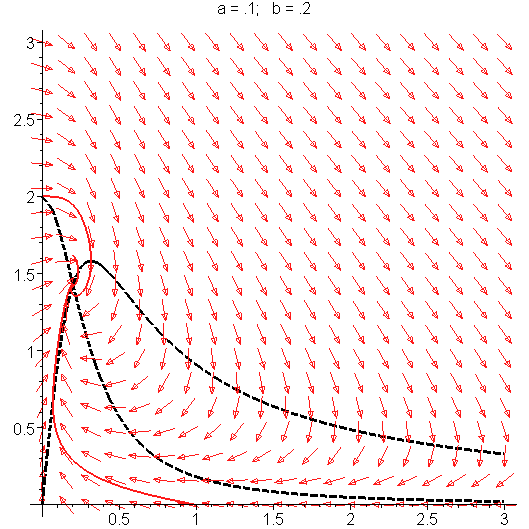
Physical reality is becoming increasingly digital.

Digital systems also exhibit bifurcation*
Local stability and Hopf bifurcation analysis of a Rate Control Protocol with two delays
Abuthahir and Gaurav Raina, 2015
*
Bifurcation: A smooth parameter change leads to a qualitative change in behaviour.
To design safe and robust digital systems, we need to understand their behaviour with respect to parameters.
- Define bifurcation in terms of appropriate qualitative behavioural equivalence.
- Study techniques for expressing behavioural patterns.
- Design techniques and algorithms for computing digital bifurcation analysis.
- Evaluate these techniques using a suitable implementation.
Research question:
What is bifurcation in digital reactive systems?
Qualitative equivalence of reactive systems
- Topological vs. simulation perspective (bisimulation, etc.)
- Continuity on parameter space
Behavioural patterns
- Temporal logics with hybrid operators
Algorithms based on formal verification
- Model checking
- Abstraction, state-space reduction, parallel computation
Evaluation (case studies)
- Abstractions of continuous systems (ODE)
- Discrete models (Boolean Networks, TLA+)
- Hybrid systems
Preliminary results:
In [1] and [2], we have shown that temporal logics with parameter synthesis can be used to detect behavioural patterns.
[1] High-performance discrete bifurcation analysis for piecewise-affine dynamical systems
L. Brim, M. Demko, S. Pastva, D. Šafránek, HSB 2015
[2] A Model Checking Approach to Discrete Bifurcation Analysis
N. Beneš, L. Brim, M. Demko, S. Pastva, D. Šafránek, FM 2016
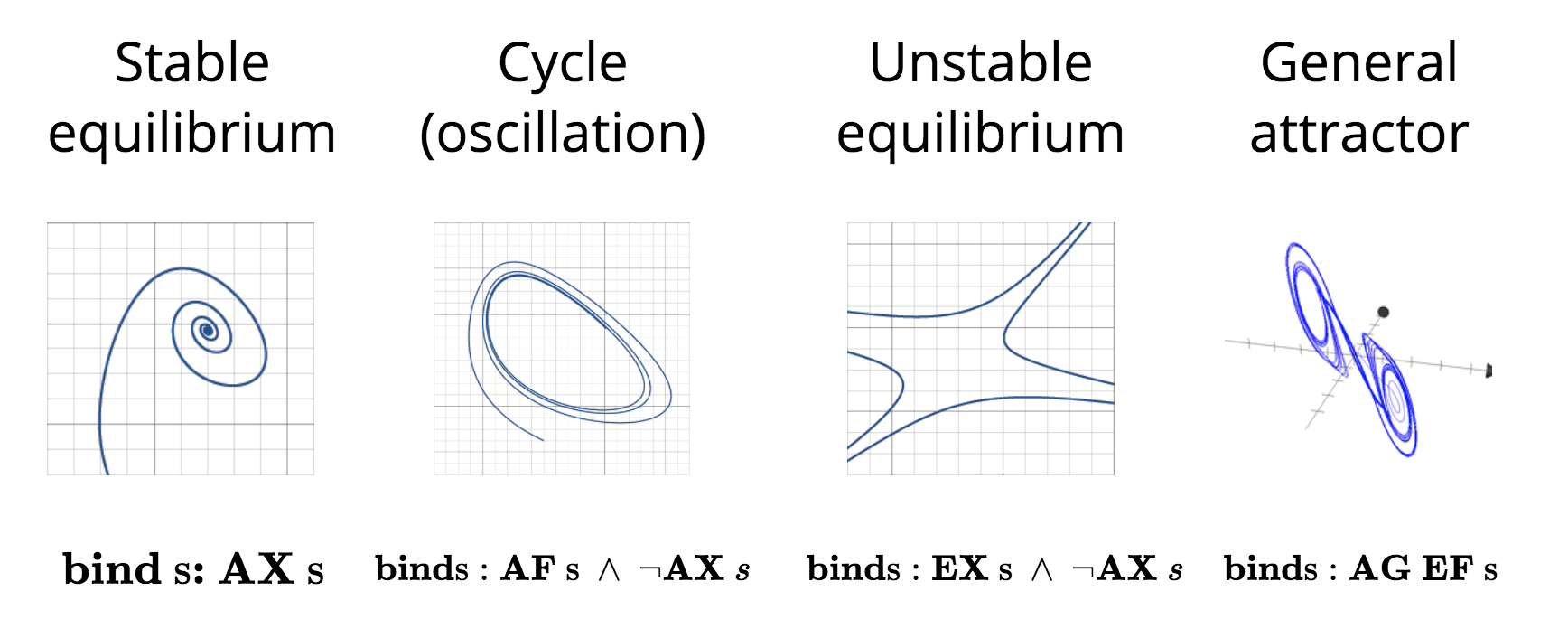
In [3] and [4], we have introduced a semi-symbolic parameter synthesis technique and a tool PITHYA.

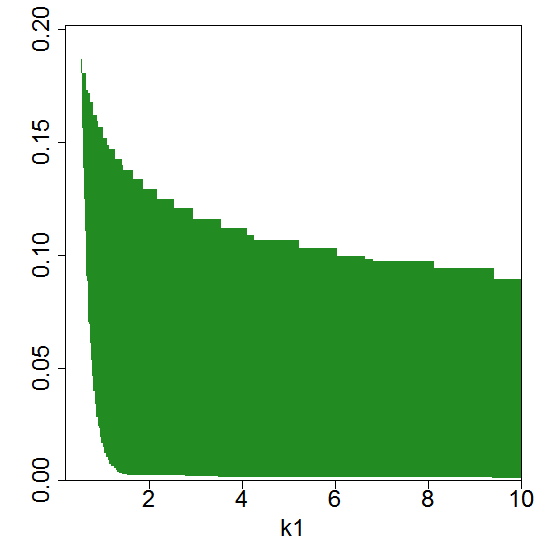
Preliminary results:
[3] Parallel SMT-based parameter synthesis with application to piecewise multi-affine systems
N. Beneš, L. Brim, M. Demko, S. Pastva, D. Šafránek, ATVA 2015
[4] Pithya: A Parallel Tool for Parameter Synthesis of Piecewise Multi-affine Dynamical Systems
N. Beneš, L. Brim, M. Demko, S. Pastva, D. Šafránek, CAV 2017
In [5] and [6], we present case studies of aforementioned techniques based on collaboration with Faculty of Science and Faculty of Medicine.
Preliminary results:
[5] High-Performance Symbolic Parameter Synthesis of Biological Models: A Case Study
M. Demko, N. Beneš, L. Brim, S. Pastva, D. Šafránek, CMSB 2016
[6] Toward Modelling and Analysis of Transient and Sustained Behaviour of Signalling Pathways
M. Hajnal, D. Šafránek, M. Demko, S. Pastva, P. Krejčí, L. Brim, HSB 2016
